Different Breeds of Goat:
What Breed of Goat is Best for Your Homestead?
Different breeds of goat for different folks. Ain't it great? I mean there are so many different breeds to choose from, whether you just want a cute little goat for a pet or you want to start a goat milk farm.
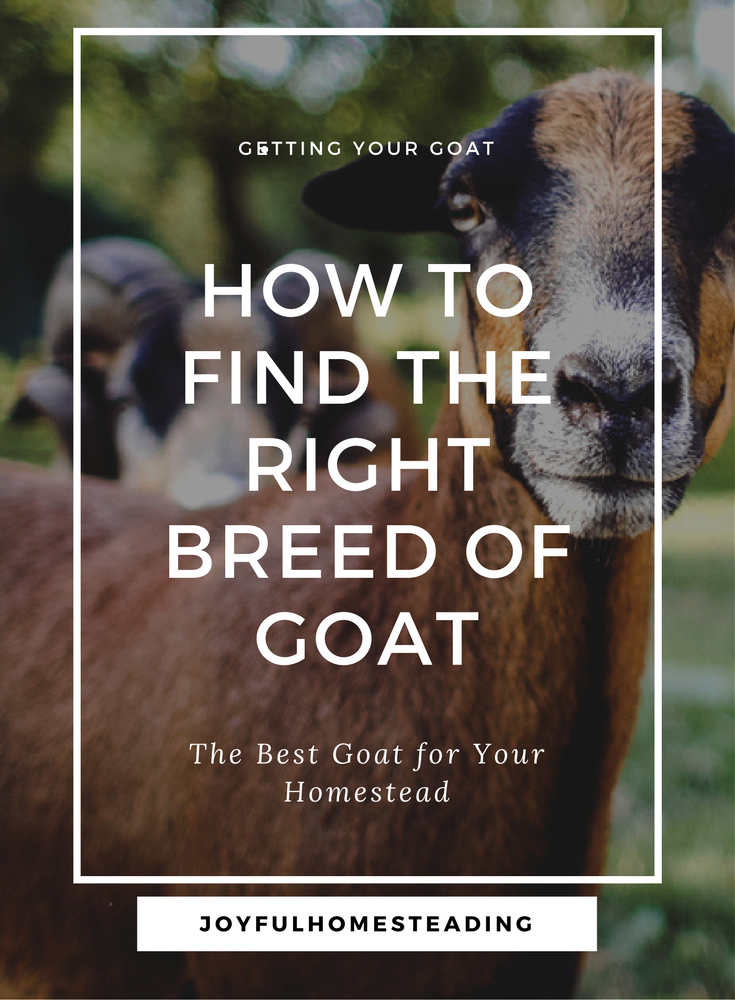
Goats are the coolest critters on the planet, as far as I’m concerned. Since biblical times, they’ve provided milk, meat, skins and lots of fun to those lucky enough to own them.
Trust me, you don't want to be left out. These guys are so much fun.
So if you're thinking about investing in a couple of goats (and you will need at least two, since they get lonely otherwise), read on.
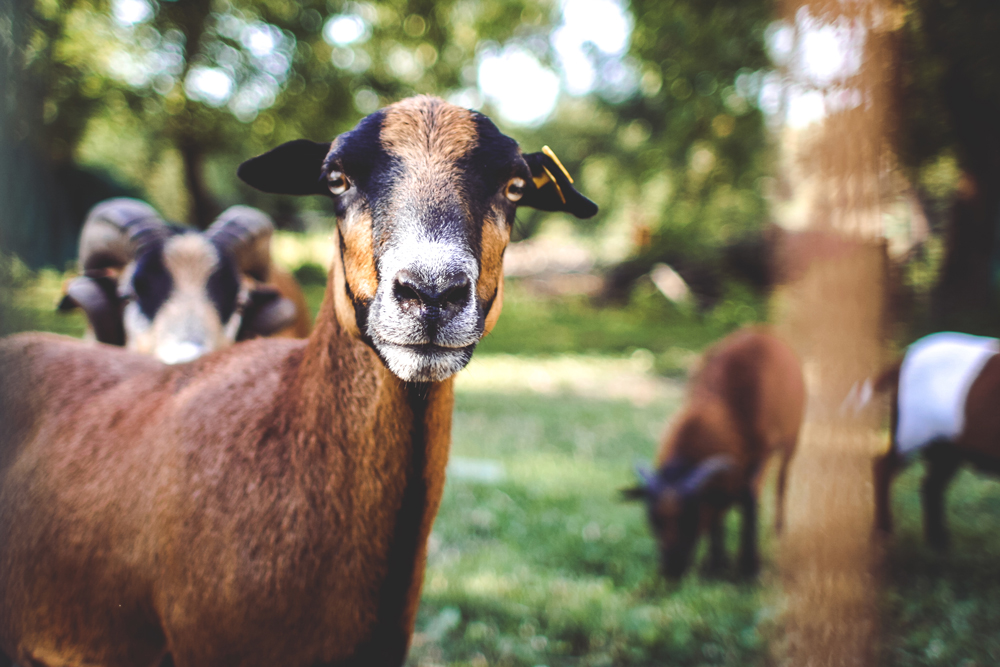
But before investing in those goats, you need to ask yourself a few questions.
What's Important to You?
Consider what's important to you: Do you want milk? Do you prefer raising goats for meat? Or are you interested in the hair for weaving?
If you want a lot of milk, then consider the nubian or Saanan. Some can produce up to a gallon of milk per day. But I'm getting ahead of myself.
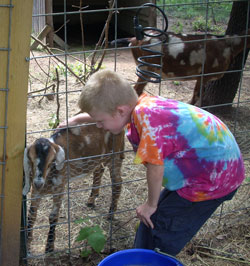
First, let's talk about a great source of homesteading income.
The Boer Goat - The Best Meat Goat
If you're looking for a meat goat, then hands down, the boer is the best of all the different breeds of goat.
Be warned though: the Boer are infamous for their escape tactics. They consider most fencing a challenge, and they are not much good for milking.
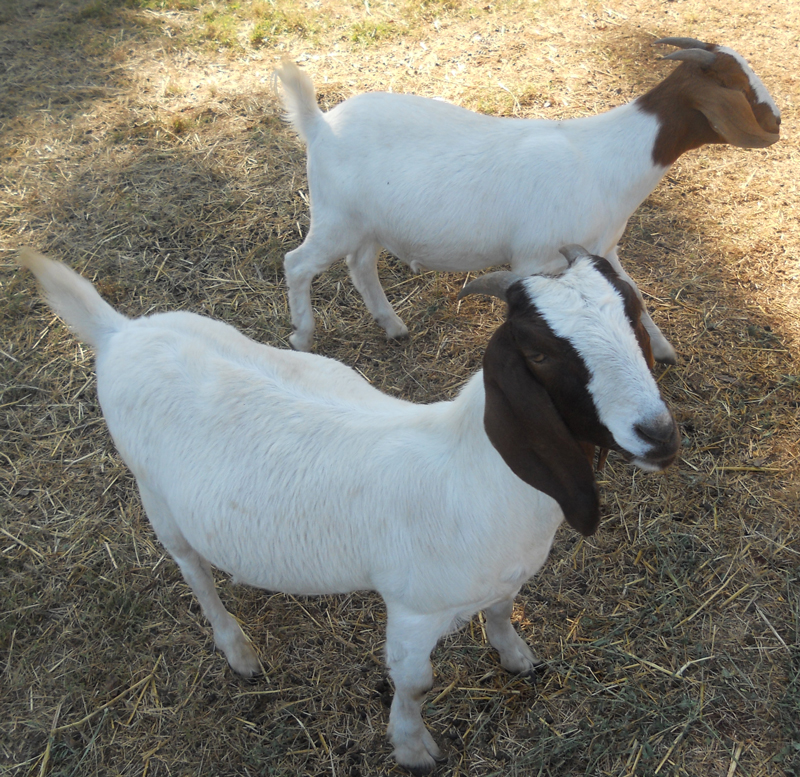
If you just want a little extra meat, the dairy goats should provide sufficient meat when culls and unwanted kids are butchered.
But, if you looking for an upcoming source of homesteading income, read this article.
The Dairy Breeds
Nubians
Nubians are popular because their milk has the highest content of butterfat. They can be any color or color pattern, but all have the same drooping ears and Roman noses. They are designed to cope with heat and desert conditions.
They tend to be large, but timid animals and can be easily restrained. Nubians need company, and will cry - loudly - if left alone.
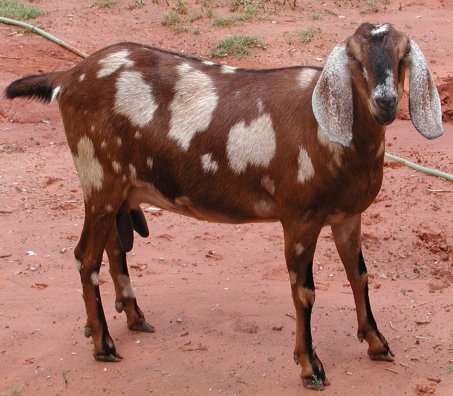
LaMancha
This is a great animal. The LaManchas are sweet tempered on the whole and produce a good quantity of milk. They are also easy to recognize; they look like they have no ears.
Saanen
Of all the different breeds of goat, these are some of the largest. Pronounced SAH-nen, these are pure white goats with erect ears. Not only are they large animals, they are also heavy milk producers. Saanens prefer shade, so if you do decide to keep a couple of this breed, pen them in a shady spot.
French-Alpine
The French Alpine breed originated in the Alps and comes in a variety of colors and markings. Breeders have emphasized size and production rather than color, so the French-Alpine may range from pure white through gray, brown, black and everything in between. They are generally short-haired and have a high average milk production.
Oberhasli
These wonderful animals have a red bay coat with black feet and face. They have a very sweet temperament and produce a delicious, slightly sweet milk.
Toggenburg
These are the oldest known breed. They are slightly smaller than the Alpines. Their hair is short or medium in length and is brown, either light or dark. They have a white stripe down each side of their faces. They also have white on either side of the tail and a white rump. They prefer cooler conditions, but have a high milk production.
Nigerian Dwarf
If you have a backyard farm, this breed could be the type for you. These little girls are small, but they put out an impressive amount of milk for their size.
Granted, you won't get as much milk from a Nigerian Dwarf than a Nubian, but the Nigerian Dwarf can produce from 2-6 pounds of milk per day. They are ideal for families who just want a couple of gallons of milk per week.
The African Pygmy
Another small goat with an impressive output of milk. They are playful, affectionate, and excellent with children.
Different Breeds of Goat A Hairy Benefit
Finally, Angoras are bred for their long silky mohair and for their meat.
What Other Visitors Have Said
Click below to see contributions from other visitors to this page...
Have Any Comments? Post Them Here! Not rated yet
Share your comments by clicking the link, and thanks for sharing!







New! Comments
Have your say about what you just read! Leave me a comment in the box below.